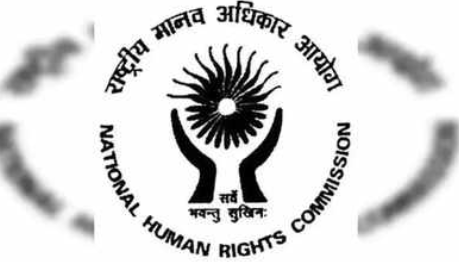NHRC Notice to Odisha Government Over Custodial Death (GS Paper 2, Governance)

Introduction
- On July 6, 2024, the National Human Rights Commission (NHRC) issued a notice to the Odisha government, requiring an explanation as to why the Commission should not recommend monetary compensation to the next of kin of a person who allegedly died in police custody.
- This incident has raised significant ethical and legal concerns regarding custodial violence and the responsibilities of law enforcement agencies.
What is Custodial Death?
- Custodial death refers to a death that occurs while a person is in the custody of law enforcement officials or a correctional facility.
- Causes can include excessive force, neglect, or abuse by the authorities.
- The Law Commission of India states that violence committed by a public servant against an arrested or detained person amounts to custodial violence.
Judicial Pronouncements on Custodial Death
Several landmark Supreme Court cases have addressed custodial violence:
- Kishore Singh vs. State of Rajasthan (1981): Held that the use of thirddegree methods by the police violates Article 21 of the Constitution of India.
- Nilabati Behera vs. State of Orissa (1993): Established that the state is liable to pay compensation for custodial deaths resulting from police negligence or brutality, recognizing the state's responsibility to protect the right to life.
- Joginder Kumar vs. State of Uttar Pradesh (1994): Addressed human rights violations due to indiscriminate arrests, emphasizing recommendations from the National Police Commission to avoid unnecessary arrests.
- D.K. Basu vs. State of West Bengal (1997): Laid down specific guidelines to prevent custodial torture and deaths, including requirements for arrest memos, the right to medical examination, and access to legal counsel.
DK Basu Case Guidelines
The Supreme Court provided preventive measures to be followed by police officers during arrests, such as:
- Prohibiting third degree methods.
- Improving the working environment, training, and orientation of police officials with basic human values.
- Following constitutional requirements under Articles 21 and 22 (1).
- Creating awareness among arrestees about their basic rights.
- Ensuring that an arrest memo is made and a family member is present during the arrest.
Ethical Concerns Associated with Custodial Deaths
Custodial deaths raise several ethical issues, including:
- Violation of Human Rights and Dignity: Inflicting physical and psychological harm on individuals in custody violates their inherent dignity and basic human rights.
- Undermining the Rule of Law: Engaging in violence contradicts the principles of justice, equality, and the safeguarding of human rights.
- Presumption of Guilt: Torturing individuals before conviction violates their right to a fair trial and due process.
- Professionalism and Integrity: Custodial violence breaches ethical standards expected of law enforcement officers, damaging the profession's reputation.
Measures to Prevent Custodial Torture
Several measures can be taken to prevent custodial torture and deaths:
Strengthening Legal Systems
- Enforcing strict laws against torture.
- Ensuring prompt and impartial investigations into allegations of custodial torture.
- Holding perpetrators accountable through fair and expeditious trials.
Police Reforms and Sensitization
- Improving police training programs to uphold human rights and dignity.
- Establishing oversight mechanisms to monitor and address cases of custodial torture.
- Promoting accountability, professionalism, and empathy within law enforcement agencies.
Empowering Civil Society and Human Rights Organizations
- Supporting active advocacy by civil society organizations for victims of custodial torture.
- Allowing NHRC to inquire into matters even after a year from the alleged human rights violation.
- Providing support and legal aid to victims and their families.
- Collaborating with international human rights bodies and organizations to seek redress and justice.
Conclusion
- The NHRC's notice to the Odisha government regarding the alleged custodial death highlights the urgent need for accountability and reform in law enforcement practices.
- Custodial deaths not only violate human rights but also undermine the rule of law and ethical standards expected of police officers.
- Strengthening legal systems, implementing police reforms, and empowering civil society are crucial steps to prevent custodial torture and ensure justice for victims.
- The judiciary's guidelines and ethical considerations must be rigorously followed to protect the dignity and rights of individuals in custody.


